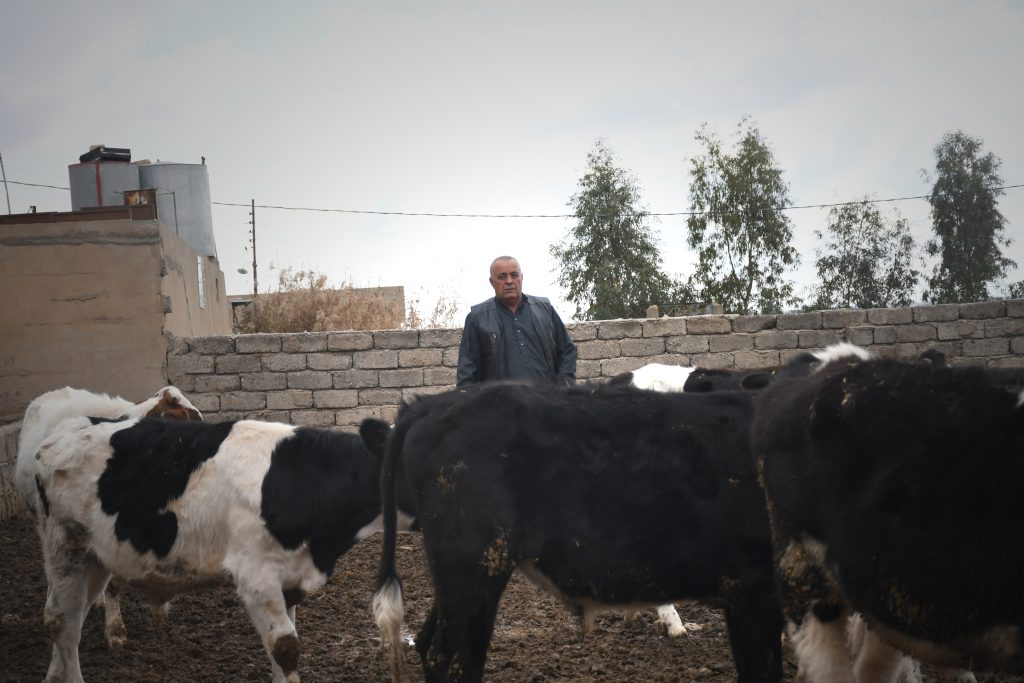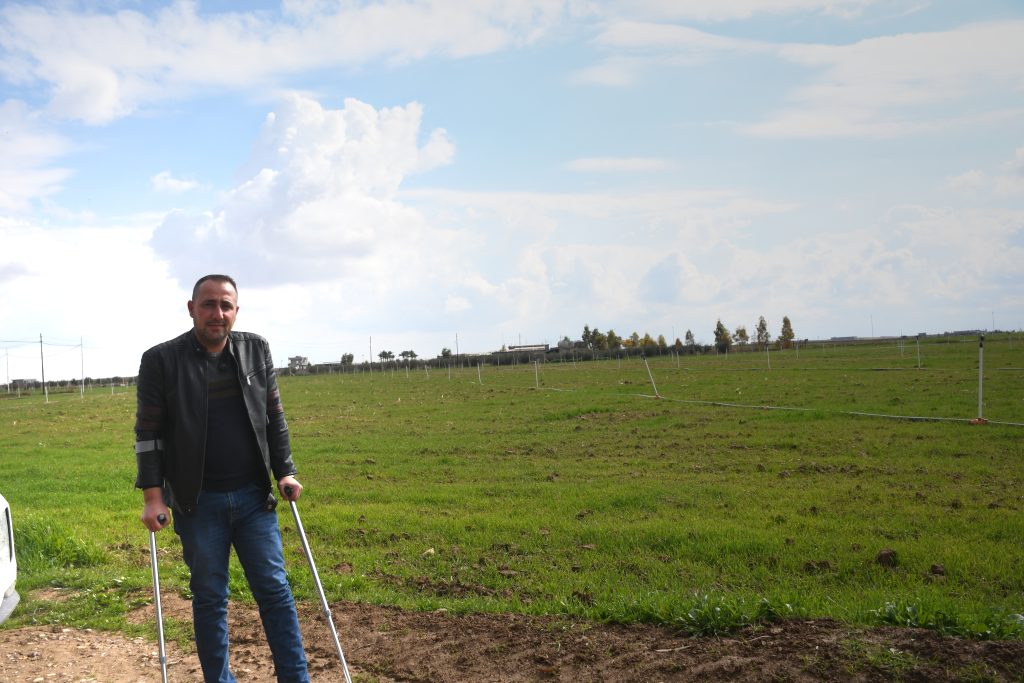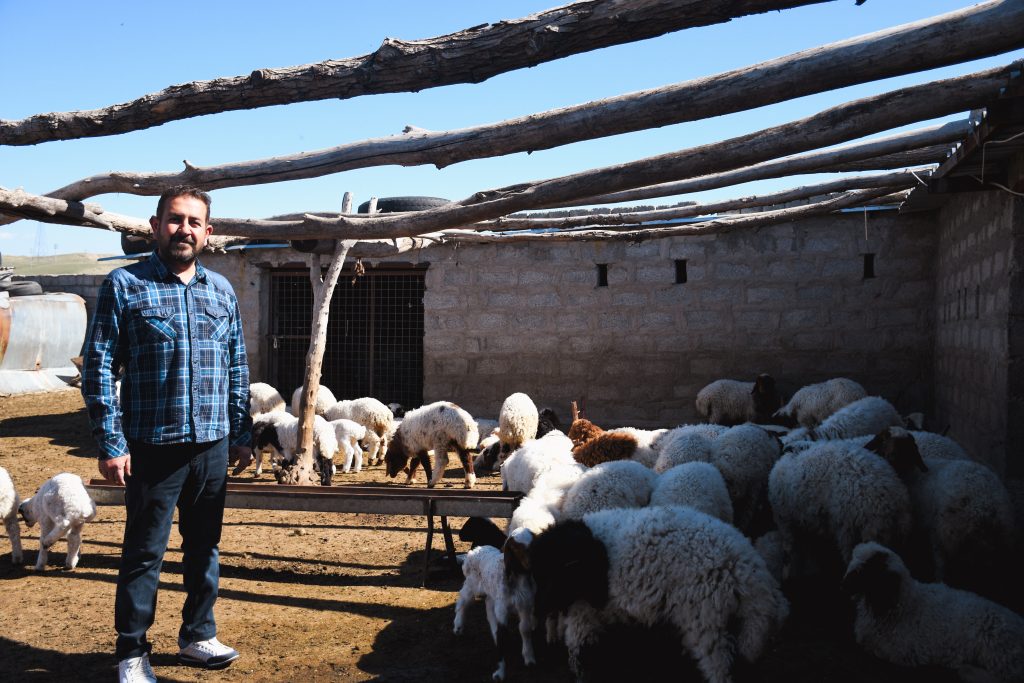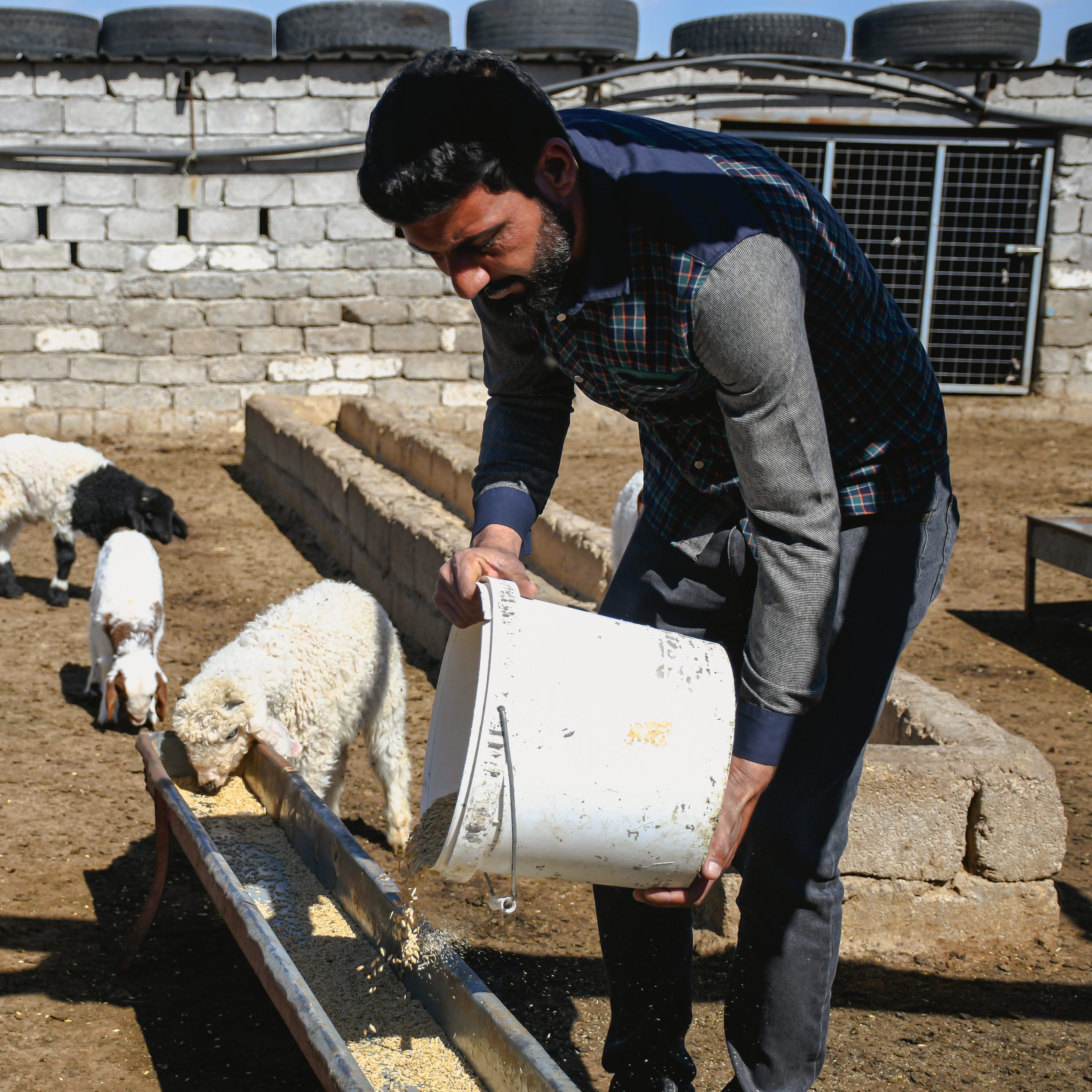In partnership with the U.S. State Department’s Bureau of Population, Refugees, and Migration (PRM), AVSI Iraq implements the project “ASET: Achieving Socio-economic Stability of Returnees, Host Community and IDPs” in the Nineveh and Duhok governorates of Iraq.
The Ninewa region is known for its fertile land, which has the potential to support a thriving agricultural sector. However, years of conflict and displacement have taken a heavy toll on the local economy, leaving many farmers and breeders struggling to make ends meet.
To address this issue, the ASET project has intervened in various areas, including cows, calves, sheep, poultry, and irrigation systems. By providing training, support, and resources, the project has helped farmers and breeders to improve their production, increase their income, and contribute to the wider economy. This transformative impact of the ASET project has been sustained throughout its two phases, with the first phase spanning from 2020 to 2022 and the second phase from 2022 to 2024.
For example, Mohammed Tahir, a calf breeder, was struggling to support his family before receiving support from the ASET project. With the program's assistance 12 months ago, he has been able to improve the quality and quantity of his calves, which has enabled him to sell them at higher prices and increase his income. This sustained progress showcases the long-lasting effects of the project's interventions. The positive outcomes are not only limited to Mohammed Tahir and his family but have also had a ripple effect on the wider community.

Similarly, Wissam Youhanna, a farmer, was facing significant losses due to the lack of rain in the region. However, with the irrigation system provided by the ASET project, he has been able to improve his yields and generate more income from his land. This success story further emphasizes the project's enduring impact on the livelihoods of individuals in the Ninewa region.
In the Duhok region, the ASET project has focused on promoting social cohesion between host communities and Internally Displaced People (IDPs) who have been forced to flee their homes due to conflict and insecurity. The project has provided livestock resources and training to help individuals from different backgrounds come together and rebuild their lives.

The displacement crisis in Iraq began in 2014 during the invasion of ISIS, and as of 2023, “over one million people remain displaced in the country”. Most of these individuals were displaced from the Nineveh plains and Sinjar. Upon arriving in the sub-districts and villages of Duhok, many of them initially worked as daily wage laborers to cover their expenses. However, when they were introduced to the ASET project, they formed partnerships with the host communities and embarked on their own businesses.
One example of this collaboration is Abdulsalam Ahmad from the host community in Shinava village and Ibrahim Salih, a Internally Displaced person from Zummar. With the support of the ASET project, they received training and resources to start a joint business breeding sheep. This partnership has not only helped them generate income and support their families but has also fostered greater understanding and cooperation between different communities.

Although the situation has improved in some areas, many displaced individuals have expressed their preference to stay within the new community rather than returning to their former homes. Ibrahim is an example of someone who wishes to remain in the community and has no intention of going back.
The ASET project has directly benefited a total of 20,350 individuals, including 9,908 returnees, 6,997 Internally Displaced People, and 3,445 members of the host community. Furthermore, the project has had an indirect positive impact on approximately 40,000 individuals in the region.
The examples of Mohammed Tahir and Wissam Youhanna in Ninewa and Abdulsalam Ahmad and Ibrahim Salih in Duhok highlight the enduring and transformative impact of the ASET project. They provide hope for the future of these regions by demonstrating how targeted interventions can create economic stability, social cohesion, and sustainable livelihoods for conflict-affected communities in Iraq.





